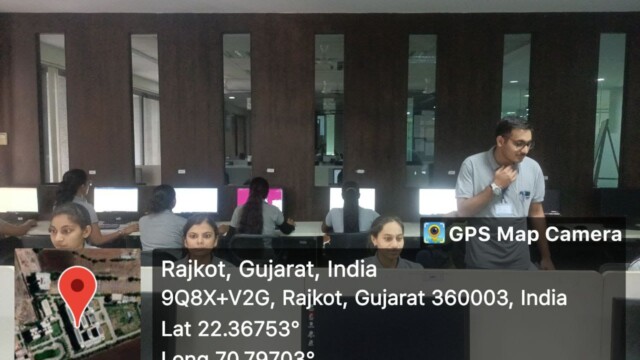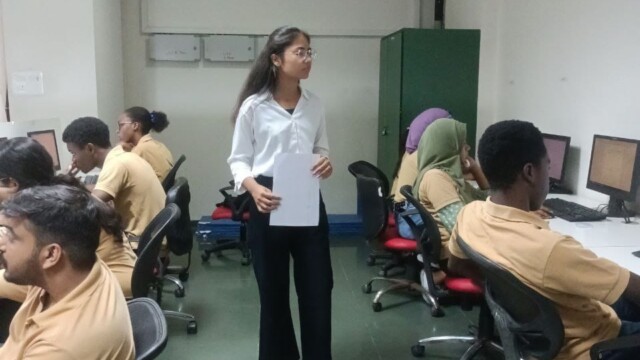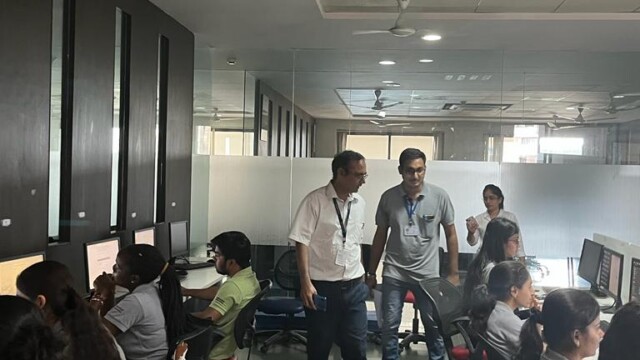What does it take to be successful in the future? What if we told you that success is not just luck but a series of learned skills? That’s the question we’re diving into. In this blog, we’ll uncover the basic skills that every student should know. In today’s ever-changing educational landscape, it’s crucial to go beyond traditional subjects. Skill development, beyond academic knowledge, is key. While a strong foundation in core subjects is vital, practical skills are equally important. They prepare students for the challenges of the modern world. Marwadi University empowers students to flourish in their careers, offering a dynamic environment where dreams become realities. Discover the best of the best at MU, one of the best colleges in Rajkot.
This blog explores the significance of skill development in empowering students for success in both personal and professional realms. Skill development enhances their adaptability and competence, ensuring they navigate the complexities of life effectively. In essence, it’s about equipping students with practical tools to thrive in our dynamic society.
Why is Skill Development Essential?
Skill development is the key to unlocking a world of opportunities for students. Beyond textbooks, it equips them with practical tools essential for navigating real-world challenges. It empowers students to adapt, innovate, and excel, seamlessly connecting classroom learning to real-world application. These skills not only enhance employability but also foster holistic personal growth, enabling students to confidently navigate life’s dynamic landscape.
List of Key Skills
-
Critical Thinking
Critical thinking is the art of analysing information objectively, enabling students to make well-informed decisions and solve problems effectively. It empowers them to navigate the complexities of various situations with clarity.
Example: Faced with a problem, a student evaluates various angles, researching and proposing a well-thought-out solution. This ability to analyse information demonstrates a keen understanding of critical thinking.
-
Communication Skills
Effective communication, both verbally and in writing, is fundamental. It ensures students can express ideas clearly, fostering better collaboration, understanding, and success in academic and professional settings.
Example: In a class presentation, you articulate ideas clearly, captivating the audience with engaging visuals. This effective communication not only conveys information but also ensures understanding
-
Creativity
Cultivating creativity encourages students to think outside the box, fostering the ability to generate innovative ideas and solutions, a skill invaluable in a rapidly changing world.
Example: Given a project to redesign a household item, you are there to innovatively incorporate sustainable materials. This showcases creativity in approaching challenges with fresh and unique perspectives.
-
Adaptability
Adaptability is the capability to embrace change and adjust to new situations seamlessly, preparing students for the dynamic challenges they’ll face in the future.
Example: When team members drop out, you adapt to roles, reorganise the tasks, and successfully lead the team. This flexibility and adaptability are essential in navigating unexpected challenges
-
Collaboration
Collaboration is the art of working harmoniously with others, respecting diverse perspectives. It enhances teamwork, collective problem-solving, and overall productivity.
Example: Working on a research assignment, students from diverse backgrounds collaborate seamlessly to produce a comprehensive project. This cooperative effort, respecting diverse perspectives, enhances teamwork.
-
Technological Literacy
Technological literacy is the proficiency in using technology effectively. It’s a crucial skill in the modern era, ensuring students are well-equipped for the digital landscape.
Example: In a digital presentation assignment, you adeptly uses software tools, enhancing their presentation. This technological literacy ensures effective communication in a digital landscape.
-
Time Management
Time management involves efficiently organising tasks and priorities, ensuring optimal productivity and the timely completion of assignments and projects.
Example: Faced with multiple deadlines, when you prioritises tasks, creates a schedule, and completes each assignment on time. This effective time management contributes to optimal productivity.
-
Resilience
Resilience is the ability to bounce back from setbacks, fostering a positive mindset and determination to persevere through challenges, a critical skill for personal and academic growth.
Example: Despite initial failures in understanding a complex topic, you persist, adjust their study approach, and master the concept. This resilience is crucial in overcoming academic challenges.
-
Leadership
Leadership is about guiding and influencing others positively. It instills a sense of responsibility and empowerment in students, preparing them for leadership roles in various aspects of life.
Example: In a group project, you’re the one who organises team meetings, delegates tasks, and motivates team members to achieve a common goal. This effective leadership ensures cohesive and successful collaboration.
-
Emotional Intelligence
Emotional intelligence involves understanding and managing one’s emotions and empathising with others. It is vital for building healthy interpersonal relationships, contributing to overall well-being and success.
Example: Recognising a classmate’s struggle and you empathetically offer support, fostering a positive class environment. This emotional intelligence contributes to a supportive and empathetic learning environment.
Conclusion
In simple terms, developing skills is a must for student success. Think of it like the most important tools for students success—communication, critical thinking, tech know-how, emotions, and adaptability. These tools will help you grow personally, succeed in your careers, and make a positive impact on society.
This is surely going to help you handle real-life challenges.



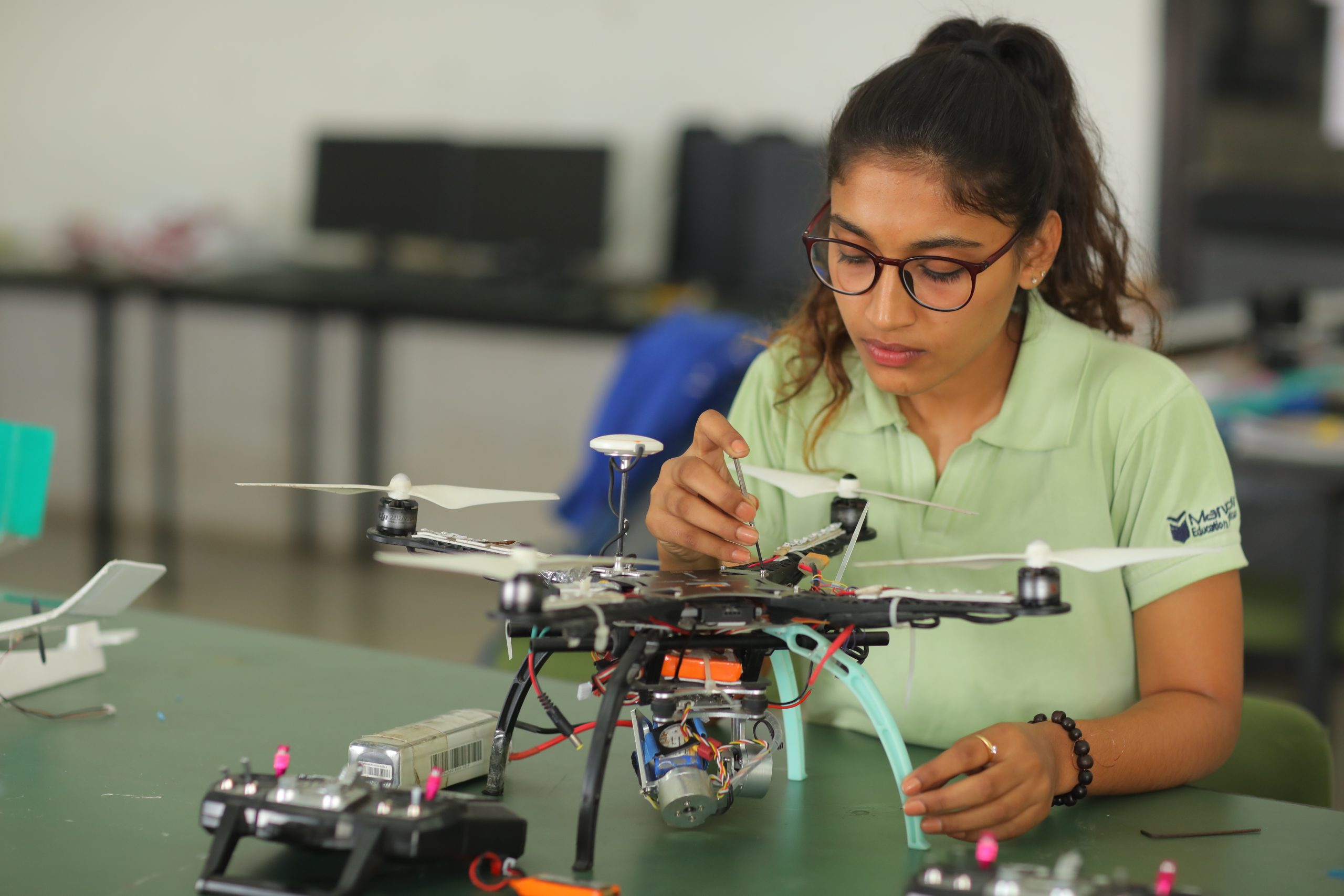

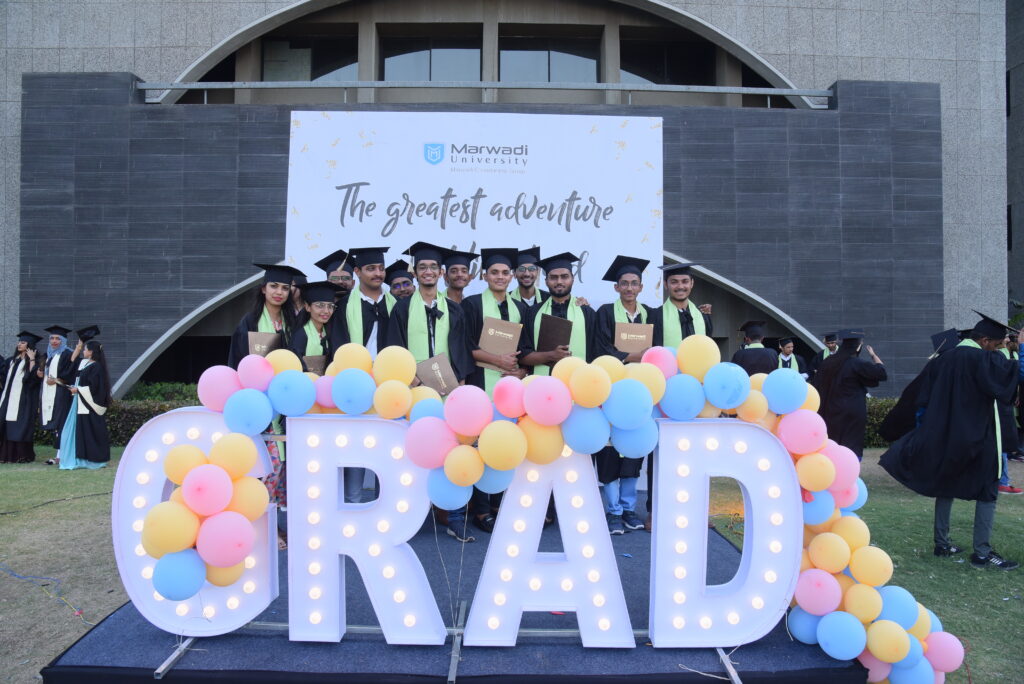
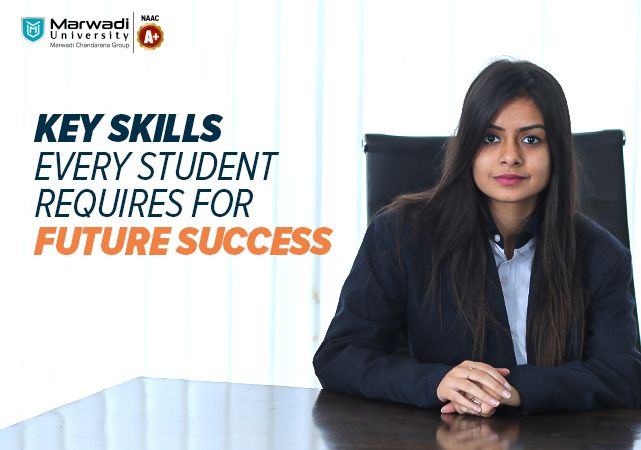









 International Airport
International Airport  Railway Station
Railway Station  GSRTC Bus Port
GSRTC Bus Port 
